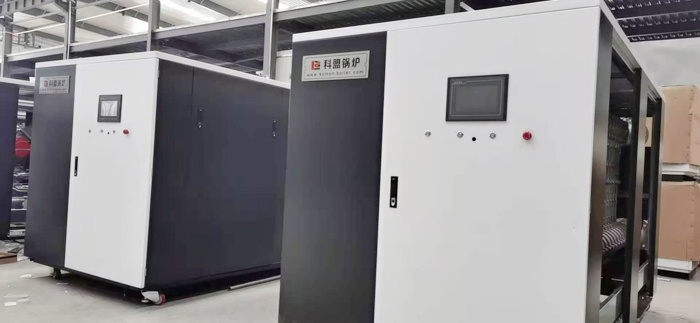Dry goods sharing! The development of condensing boilers
Release time:
2022-11-21
With the implementation of energy-saving and emission-reduction policies and the increased public awareness of low-carbon living, condensation technology is the future development trend. From the perspective of energy structure, natural gas, as a clean and environmentally friendly energy source, will be widely used. The future development of condensing boilers will show obvious advantages, and it is a general trend that they will become the mainstay of the future market.
Condensation is a concept many don't understand. It refers to the large amount of superheated steam in boiler exhaust gas; by low-temperature condensation, a portion of the heat is recovered, improving boiler efficiency.Condensing boilerIs it always in an effective condensation state during operation? Certainly not, because condensation varies with water and flue gas temperatures. When the temperature is low, there's more condensate. At higher temperatures, exceeding the critical point of condensation, no condensation occurs. Therefore, this boiler is called a condensing boiler. It's actually a semi-condensing boiler. So what's a super-condensing boiler? There's no return water temperature limit; if it's in a condensation state throughout operation, it's a full condensing boiler, also known as a condensing boiler.
Advantages of condensing boilers: high overall efficiency, low nitrogen oxide emissions. Currently, the cost of replacing and purchasing boiler equipment is high; it's better to rent. It's worry-free, effortless, and importantly, saves money.

With the implementation of energy conservation and emission reduction policies and the increasing public awareness of low carbon, condensation technology is the future development trend. From the perspective of energy structure, natural gas, as a clean and environmentally friendly energy source, will be widely used. The future development of condensing boilers will show obvious advantages, becoming the mainstay of the future market is a general trend.
Condensation utilizes a condensing heat recovery device to absorb the sensible heat in the high-temperature flue gas discharged from the boiler, as well as the latent heat released by water vapor condensation, improving the boiler's thermal efficiency. Compared with traditional coal-fired boilers, condensing boilers use clean and environmentally friendly natural gas or gas as fuel; the clean composition of natural gas means that condensing boilers produce virtually no waste gas, greatly alleviating the pollution of sulfur oxides and nitrogen oxides in urban air; moreover,Condensing boilerHigh-temperature flue gas can be condensed into low-temperature liquid, saving energy. The condensation heat of water vapor produced by burning 1 cubic meter of natural gas, after being absorbed by the boiler, can increase boiler efficiency by about 10%; with the reduction of flue gas heat loss, efficiency can be improved by 2%~3%.
If the efficiency of ordinary boilers is generally around 93%, condensing boiler technology can improve it, possibly reaching over 99%. Such an energy-saving, low-nitrogen, and environmentally friendly boiler will inevitably lead the future development trend of the boiler industry.
Currently, the heat exchangers of condensing boilers on the market are mainly cast aluminum and silicon aluminum alloy heat exchangers, using a full premix combustion system. However, in Europe, condensing boilers have been increasingly used and promoted in more and more countries. The European market is basically all condensing products, and the production and sales of conventional household gas boilers have been banned in many countries. However, in China, condensing boilers are still in the initial stage of development. Condensers are popular in central and southern China due to their good performance and quality.
Compared to radiators, usingCondensing boilerresults in higher thermal efficiency. Therefore, many new buildings now incorporate this during construction for efficient heating, saving more money during the heating season.
Latest News




